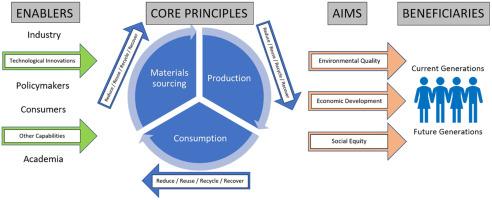In the labyrinth of modern finance, certain stocks emerge not merely as investment vehicles but as symbols woven into the collective consciousness. Among these, the so-called “National Fortune Stocks” in the United States have recently experienced a staggering surge, capturing headlines and imaginations alike. Yet beneath the veneer of market exuberance lies a profound reflection on human nature and societal values. This article explores the phenomenon of these soaring stocks and reveals the deeper,often overlooked,narrative—the sobering reality of human ambitions,fears,and the pervasive shadows that loom in pursuit of prosperity.
Unraveling the Myth of Prosperity and Its Hidden Costs
Many perceive prosperity as a clear sign of national success, a beacon guiding societies toward greatness. However, beneath the shimmering facade lies a more complex reality: the pursuit of growth often masks its silent, sometimes devastating costs. Such costs include environmental degradation, widening social inequalities, and the erosion of cultural identities—all sacrificed in the relentless quest for economic dominance. When we focus solely on statistics and stock markets, we risk overlooking these long-term damages, wich are ultimately the true toll of unbridled prosperity.
Taking a closer look at the hidden toll reveals uncomfortable truths: in many cases,the seemingly unstoppable rise of “national champions” comes at an expense that cannot be easily measured. The sacrifices are frequently enough invisible, tucked away in the stories of communities displaced, ecosystems degraded, and workers exploited. The illusion of endless growth becomes a poker game, where the real losers are the future generations who inherit the destabilized foundations of our current pursuits. It prompts us to question whether prosperity, as currently defined, is truly worth its hidden costs.

The Societal Toll of Market-Boon Visions on Future Generations
As society becomes increasingly captivated by the allure of rapid economic gains—embodied in the surge of so-called “national prosperity stocks”—the underlying consequences for future generations are often overlooked. This obsession fosters a short-term mindset,prioritizing immediate profits over sustainable progress,ethical considerations,and social well-being. The relentless pursuit of market-driven narratives can distort priorities, diverting resources from vital areas such as education, environmental conservation, and health infrastructure, thereby casting long shadows over the prospects of those yet to come.
Consequently, this market-centric vision often perpetuates inequality and environmental degradation, with the weight falling disproportionately on the shoulders of future generations. Society must grapple with questions like:
- What legacy are we leaving behind?
- Are our current pursuits sustainable?
- How can we balance economic growth with responsible stewardship?
The answers will determine whether the price paid is measured solely in financial terms, or if the true toll extends to social fabric and ecological stability.
| Cost to Future Generations | Manifestation |
|---|---|
| Environmental | Depletion of natural resources and climate change |
| Social | Widening inequality and diminished social cohesion |
| Economic | Market bubbles and financial instability |

Insights into Responsible Investment and Sustainable Growth Strategies
In a world increasingly driven by economic narratives and investment trends, it is crucial to examine the deeper implications of such surges. The meteoric rise of what are dubbed “national prosperity stocks” often masks underlying vulnerabilities,revealing a conflict between short-term gains and long-term sustainability. Responsible investment champions the idea that growth should not come at the expense of societal well-being or environmental integrity. Instead, it calls for a paradigm shift where profits are aligned with ethical considerations, fostering a sustainable future that balances economic vitality with social responsibility.
To understand the core of sustainable growth strategies, stakeholders must consider key principles such as:
- Integration of ESG Factors: Incorporating Environmental, Social, and Governance considerations into decision-making processes.
- Transparent Reporting: Providing clear disclosures on the impact of investments on sustainability goals.
- Stakeholder Engagement: Actively involving communities and employees to ensure inclusive growth.
| Growth Type | Focus Area |
|---|---|
| Green Tech | Innovation for sustainability |
| Social Investment | Community upliftment |
| Governance | Accountability & ethics |

Navigating Ethical Dilemmas in the Pursuit of Economic Glory
As economic pursuits reach new heights, individuals and corporations frequently enough find themselves at a crossroads where moral integrity clashes with the relentless drive for success. The temptation to cut corners, manipulate data, or prioritize profit over public well-being presents a profound ethical challenge. Within this complex landscape, transparency and accountability become vital compass points, yet they are frequently compromised in the race for dominance. It raises critical questions: How do we balance the pursuit of economic glory with responsible behaviour? Are short-term gains worth long-term societal consequences, or does true progress demand a more conscientious approach?
| Ethical Dilemma | Possible Response |
|---|---|
| Profit over environmental sustainability | Implementing eco-friendly practices driven by corporate values |
| Data manipulation to inflate stock value | Enforcing strict regulatory oversight and ethical reporting |
| Exploiting labor for cost reduction | establishing fair labor standards and ethical sourcing |
at the core of these challenges lies a basic question: can true achievement coexist with moral integrity, or does the pursuit of wealth inherently lead humanity toward its darker aspects? Recognizing the inherent risks of ethical compromises prompts a reflection on our values and the societal frameworks that must uphold integrity amid the pursuit of greatness. Only by confronting these dilemmas head-on can we aspire to a future where economic success does not come at the cost of human dignity.
In Conclusion
As the curtain falls on this exploration of America’s “national destiny” stocks, we are reminded that beneath the veneer of soaring valuations lies a deeper story—one reflecting human aspirations intertwined with collective anxieties. these market phenomena serve as mirror images of our greatest hopes and, perhaps, our most profound sorrow. As investors and observers, recognizing this duality allows us to approach the future with a measured viewpoint, understanding that beneath the exuberance frequently enough lies a narrative of both possibility and caution.